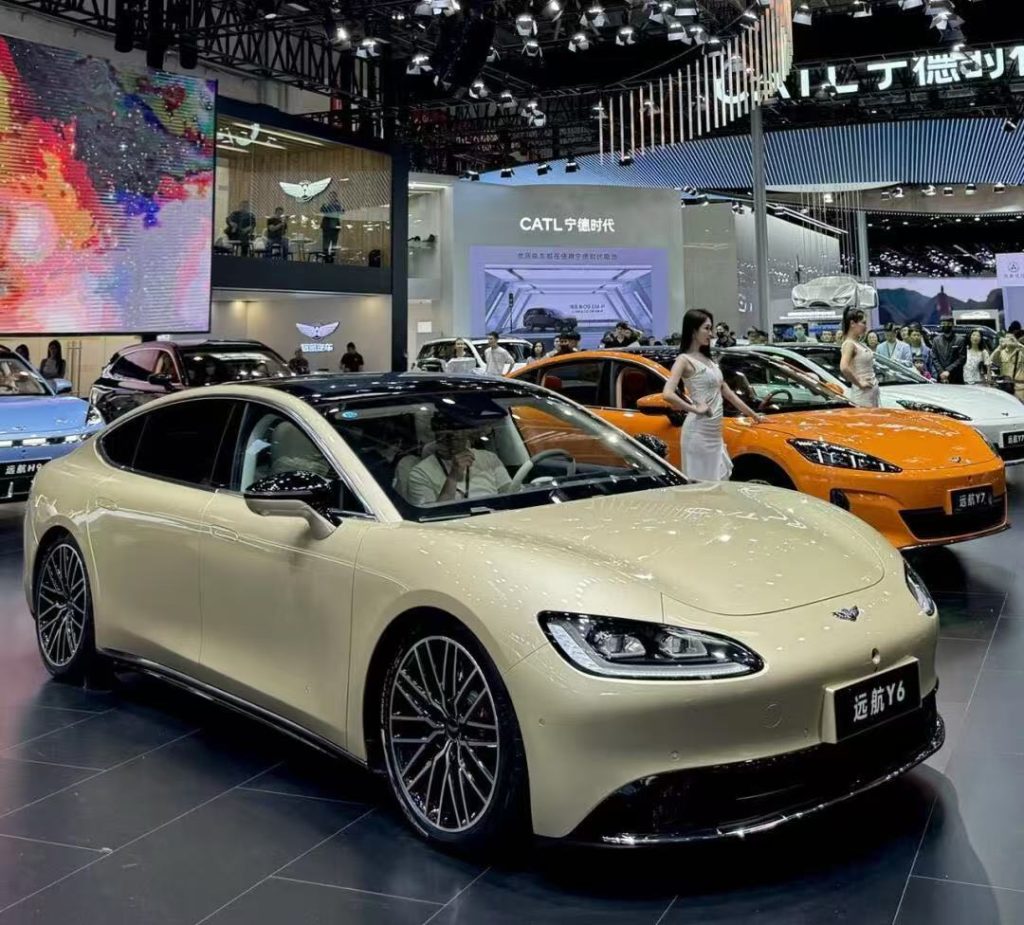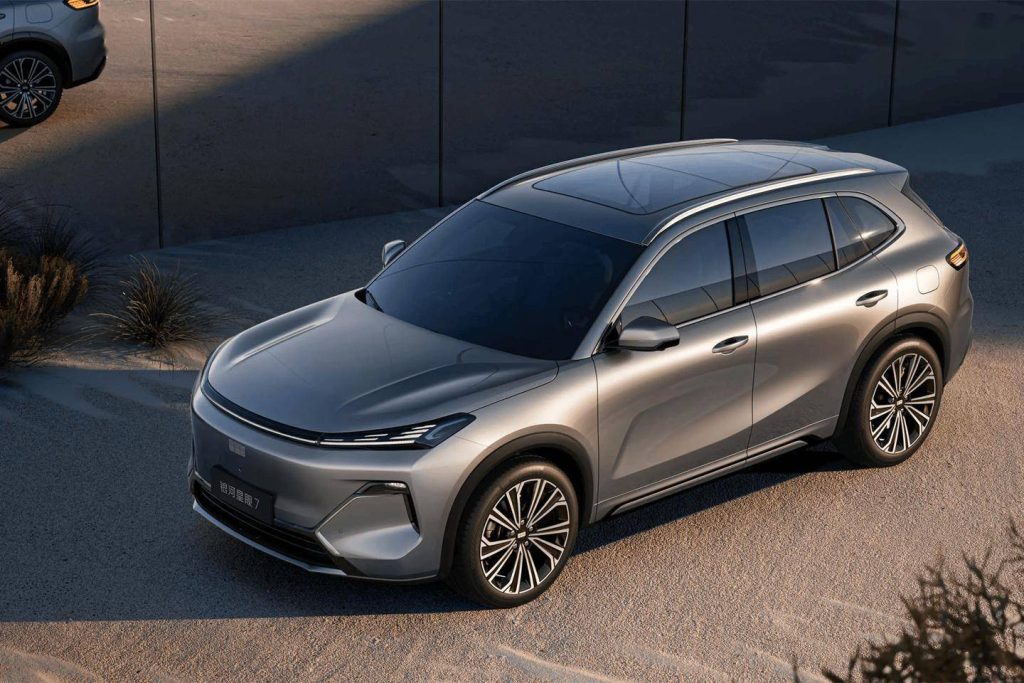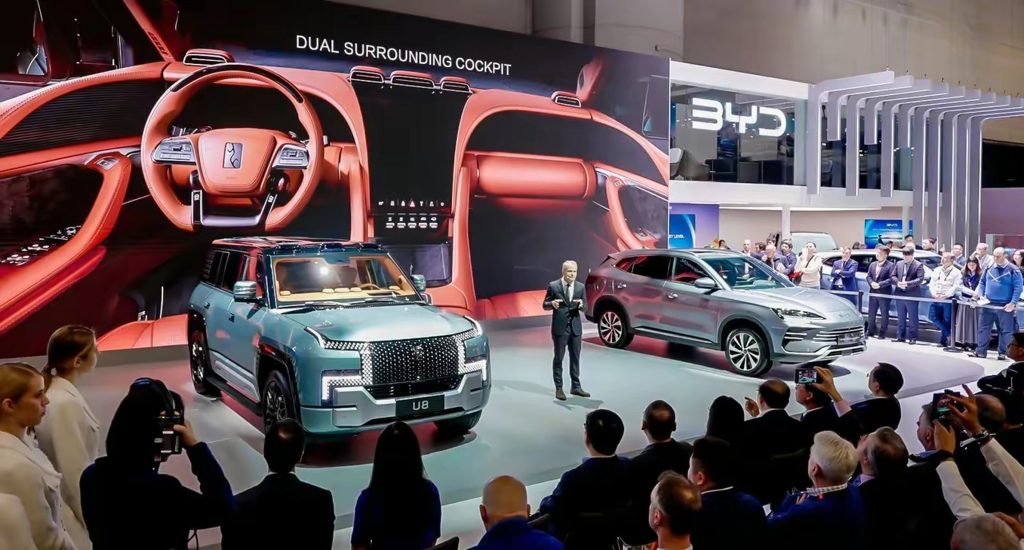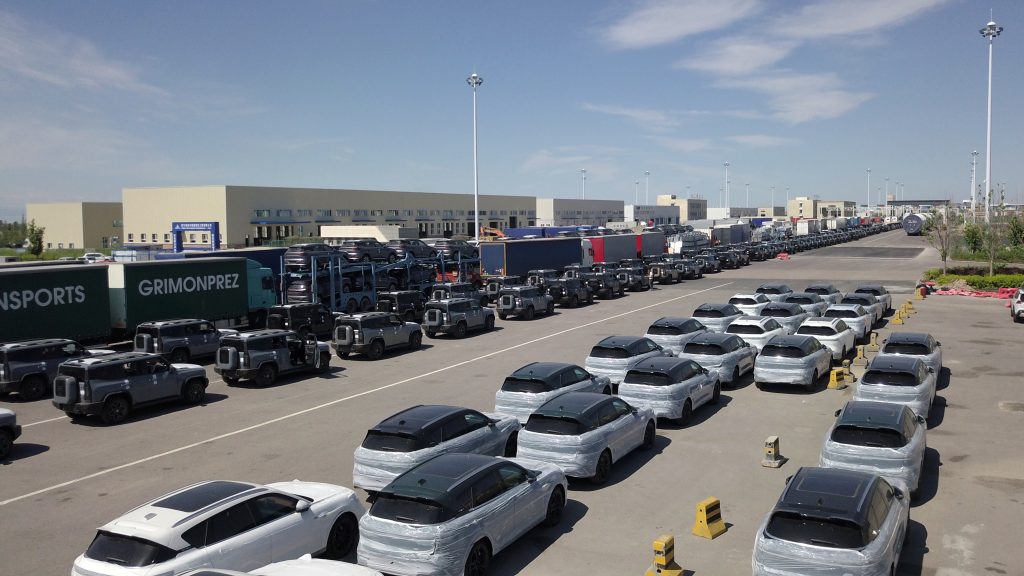I. Market Recovery and Industry Trends
In February 2025, China’s automotive market defied seasonal slumps, with new energy vehicles (NEVs) maintaining robust growth. BYD retained its sales crown with 322,800 units sold, marking a 161.4% year-on-year increase. Geely Auto achieved total sales of 204,900 units (including both fuel and NEVs), up 84% YoY, with NEVs accounting for 48% (98,400 units). Despite an 18.7% month-on-month decline, Geely’s NEV sales surged 193.8% YoY. Chery Group sold 180,900 units overall (+26.4% YoY), including 44,400 NEVs (+278.3% YoY).
Li Mo, an expert from the China EV100, noted: “BYD’s full-industry-chain integration and intelligent upgrades have created a differentiated competitive edge. While most automakers are still catching up on electrification, BYD has already brought smart driving costs down to the 100,000 RMB market, reshaping the industry’s competitive dynamics.”

II. Automaker Divergence and Technological Competition
BYD: Full-Matrix Dominance
- Core Models: The Dynasty and Ocean series contributed 94% of sales, led by the Song family (89,000 units), Qin family (42,000 units), and Seagull (41,000 units).
- Premium Brands: Denza and Fang Cheng Bao surpassed 8,000 monthly sales, while the luxury Yangwang U8 delivered 105 units in its debut month.
- Tech Edge: Level 2+ autonomous driving is now standard across all models, with high-end smart driving variants rising to 15% of sales, challenging the stereotype of “prioritizing electrification over intelligence.”
Geely: Galaxy’s Surge vs. Zeekr’s Pressure
- Galaxy Series: Sold 76,000 units (+288% YoY), poised for further growth as an independent brand.
- Zeekr’s Slowdown: Growth eased to 30%, while Lynk & Co. sold 17,000 units (+31%), struggling to break into premium segments. Geely CEO Li Donghui stated: “Zeekr is recalibrating its product roadmap, with new SEA architecture-based models launching in H2.”
Chery: Tech-Driven Breakthroughs
- NEV Momentum: 44,000 NEVs sold (+278.3% YoY), with the Zhijie brand surpassing 10,000 units in its first month. The Xingtu Yaoguang C-DM features the 8295 chip and Falcon autonomous driving.
- Fuel Vehicle Anchor: Jetour sold 42,000 units, reinforcing its “King of Cost Performance” status. Chery’s R&D chief revealed: “We’ve developed 3nm chip tech for smart cockpits, entering mass production in Q3.”

New Players: The Intelligence Race Heats Up
- Xpeng: Delivered 30,500 units (+570% YoY) with MONA03/P7i’s superior value.
- Li Auto: L-Series sales hit 26,300 (+285% YoY).
- NIO + Ledao: Combined deliveries reached 13,200 (+62% YoY), though Ledao underperformed.
- Aito M9: Topped the 500,000 RMB+ segment for 11 months, but overall sales dipped 38.5% MoM. Richard Yu noted: “We’re optimizing supply chains for the M7 Ultra’s launch, with refreshed M8/M9 and Zhijie R7 range-extender models imminent.”
III. Export Boom and the BYD Paradigm
In February 2025, China’s auto exports hit 283,000 units (+112% YoY). BYD led with 67,000 units (+187.8%), dominating Europe and Southeast Asia (70% share), outselling Tesla in the UK and Spain. Key strategies include:
- Tech Democratization: Level 2+ autonomy standard; ECE-certified EU models.
- Localized Production: Thailand factory (150,000 annual capacity); plants underway in Brazil and Mexico.
- Targeted Marketing: Right-hand-drive models and partnerships like Premier League sponsorships.
Geely exported 24,900 units (+2%), while Chery plans a $2 billion IPO to fund global expansion. Great Wall sold 31,000 overseas units (+1.57%), focusing on SUVs. A German auto analyst remarked: “BYD is rewriting the rules—its EU average price (€38,000) now rivals Volkswagen’s ID series.”

IV. Challenges and Future Outlook
The industry faces mounting inventory pressures and a 12% gap between wholesale and retail growth. Competition in intelligence intensifies, with Tesla’s FSD China testing and Xiaomi’s SU7 Ultra securing 10,000 pre-orders in 3 days.
Wang Xiao, Partner at Roland Berger, emphasized: “2025 will be a watershed for Chinese automakers’ globalization. BYD’s tech spillover, Geely’s multi-brand strategy, and Chery’s vertical integration will determine global market share.”
February’s data underscores China’s automotive transformation, with NEVs and intelligence now irreversible trends. To lead globally, automakers must deepen investments in technology, branding, and services. The ultimate winners will be those who balance user experience with operational efficiency in this transformative era.
















